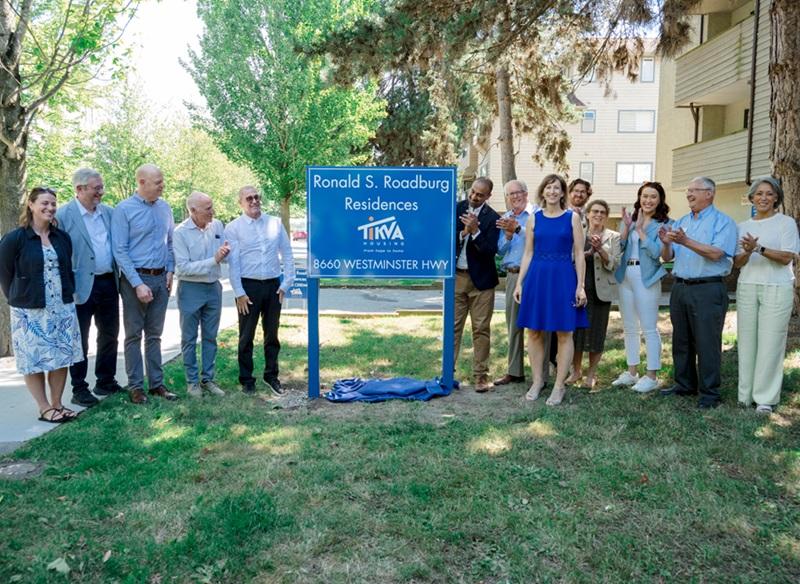
GUEST SUBMISSION: As Canada continues to grapple with a severe affordable housing crisis, we are seeing unique and creative partnerships and financing structures emerge – offering a very promising path forward.
Since 2024, I have become more and more involved in these types of real estate deals, working closely with B.C.’s Rental Protection Fund, a provincial fund created to help non-profit housing providers acquire existing rental buildings in order to safeguard affordable housing stock across the province. These deals are complex and often involve multiple streams of financing to work.
A recent example is an acquisition First National helped finance for Tikva Housing. The B.C.-based non-profit housing provider currently operates over 200 homes across eight properties in Burnaby, Richmond and Vancouver, and administers a rent relief program that offers temporary financial assistance to renters in the private market.
Tikva's mission is to provide access to innovative and affordable housing solutions that cater to local Jewish communities.
Using a unique investment model under a very tight closing timeline, I worked with Tikva to secure not only their first Rental Protection Fund collaboration, but also their first CMHC-insured mortgage, which allowed it to make its largest apartment building acquisition to date.
Tikva closed on the acquisition in May 2025, acquiring a 45-unit apartment building that provides affordable housing to more than 110 residents. The purchase was made possible using multiple financing streams that included a CMHC-insured loan of $8.237 million, a $3.8 million capital contribution from the Rental Protection Fund, and a private philanthropic donation of $2 million.
As part the Rental Protection Fund’s overall contribution, Tikva also received a capital renewal grant which will support a five-year capital repair plan for the building.
Finding the right site to maximize impact
B.C.’s largest Jewish community outside of Vancouver lives in Richmond, so finding a suitable property in this city was important for Tikva’s mission to ensure renters continue to have access to affordable housing in their community. But that was not easy to come by.
Richmond’s rental vacancy rate sits consistently around one per cent with a housing landscape composed of mostly single-family homes. On top of that, the city has a very limited selection of purpose-built rental apartments, posing an ongoing challenge to those seeking local affordable housing.
Fortunately, Tikva’s acquisition committee – which includes respected members of Vancouver’s real estate community – identified a well-located multifamily property, close to major transit, essential services, retail and community and cultural amenities.
Tikva’s newly acquired property has been named the Ronald S. Roadburg Residences and includes a mix of one- and two-bedroom units. Most units are family-sized with rents that are approximately 42 per cent below local market rates (approximately $1,500 per month).
The building, while an older asset, was purchased from its original developer and owner, so it was in well-maintained condition. Another big draw for Tikva was a large ground-floor storage room, which could be converted into an amenity space for social and cultural programming.
A potential model for the rest of Canada
Across B.C., the Rental Protection Fund has helped secure the long-term affordability of nearly 2,000 rental homes in more than 20 communities, ranging from small towns of fewer than 5,000 residents to major urban centres.
Not only did First National and Tikva’s acquisition committee help the Rental Protection Fund secure its first investment in the City of Richmond, but going outside Vancouver was also significant, as it provided the opportunity for Tikva to acquire larger affordable homes for its community.
This would not have been possible without the creative collaboration and multiple streams of financing coming together all at once.
“Securing this property in Richmond for our community was a blessing, given this market. Kyle’s deep knowledge and experience with the Rental Protection Fund and CMHC, and his financial guidance over a very tight closing timeline was invaluable," said Anat Gogo, the executive director of Tikva Housing. "He put together a variety of financial models based on the price point of the building that allowed us to reduce our own equity contribution, which is critical for community service agencies like us. We would have not been able to close so quickly and smoothly if it weren’t for Kyle’s expertise and First National’s timely support.”
Tikva’s Ronald S. Roadburg Residences acquisition is a great example of what can happen when private capital, non-profits and philanthropic partnerships align with government financial incentives and programs that prioritize protecting affordable rental stock in our major cities.
We should be paying close attention to strategies and financing models like these, as they signal what is possible for the rest of Canada once a federal rental protection fund launches later this year.










